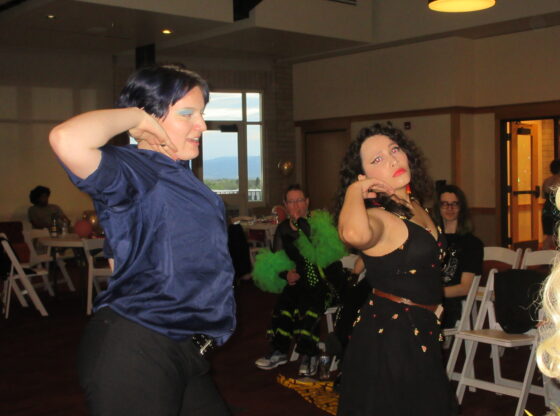On Nov.1, the Religious Studies Department held an informal gathering during Día de los Muertos, a Mexican holiday where family and friends commemorate loved ones who have died, to honor their fellow friend and colleague Dr. Luís León.
Dr. León passed away of natural causes on Oct. 16. The department expressed shock and sadness when sharing this news a month ago.
Religious studies masters’ students, undergraduate students and the Religious Studies faculty gathered in the Religious Studies department in Sturm Hall, chatting amongst each other and discussing their love and admiration for Dr. León. Food and refreshments were served as well.
During the gathering, a Día de los Muertos altar, made by Religious Studies MA student Stefanie Fajardo, was displayed. Altars during the holiday are meant to show the dead are not forgotten and that they are welcomed in their homes. A photo of Dr. León was displayed at the top, along with flowers surrounding the altar and his published works centered below the altar. Those attending the gathering were invited to either add something to the altar or simply look at the altar made in Dr. León’s honor.
Dr. León was a specialist in American religion, particularly in the West, and taught courses such as an FSEM on atheism and courses on Latinx religions. He was especially interested in the theory of how religion operated on borderlands.
“Dr. León opened up a lot of questions for us, such as what was religion like in the west of the country and how we should rethink that instead of thinking religion began in the East from England and began to move West,” said Dr. Sandra Dixon, professor of religion and psychology at DU. “What is this US religion when the border with México is somewhat artificial? What is American religion? Is it just in the US? Probably not. So what should we think now? That was the kind of thing Dr. León brought to the department.”
Dr. León’s published works further discussed the theory of religion in the borderlands from books such as “La Llorana’s Children: Religion, Life, and Death in the United States- Mexican Borderlands” to “The Political Spirituality of Cesar Chavez: Crossing Religious Borders,” a book discussing the meaning of political spirituality and if spirituality is something only linked to religion or in other areas such as politics.
The Religious Studies Department fondly remembered Dr. León’s contributions to Religious Studies as well as his vibrant personality.
“He was a live wire. He liked to talk to and greet people when they came into the department. He never ploughed through the students in the department and hid in his office,” said Dr. Dixon. “You had that sense he was really alive and interested in a lot and engaged and we miss that constantly. Every day.”











